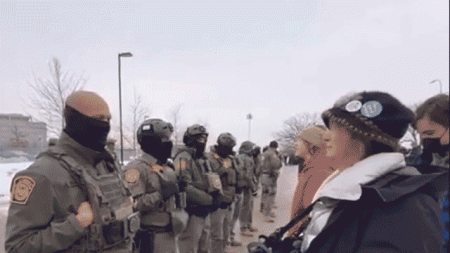Immigration Enforcement Operation Commences in Charlotte
The initiation of an immigration enforcement operation in Charlotte, North Carolina has created significant uncertainty within the community. As North Carolina’s largest urban center, Charlotte has experienced substantial growth in its immigrant population over recent years, establishing vibrant and diverse neighborhoods that contribute significantly to the city’s cultural and economic landscape. However, the current enforcement action has left many residents questioning its duration, scope, and potential impact on families and businesses throughout the metropolitan area.
Local advocacy organizations have begun mobilizing resources to support affected community members, offering legal guidance and creating informational networks to help navigate this challenging period. These grassroots efforts highlight the strong bonds within Charlotte’s immigrant communities, where neighbors are coming together to protect vulnerable residents while maintaining the social fabric that has enriched the city. Meanwhile, business owners express concern about potential workforce disruptions, particularly in industries like hospitality, construction, and food service where immigrant workers play vital roles in sustaining Charlotte’s economic growth and development.
City officials find themselves balancing complex responsibilities during this operation, attempting to maintain public safety while also preserving community trust. Some local leaders have emphasized the importance of keeping communication channels open with federal authorities while simultaneously reassuring residents that municipal services remain accessible to all, regardless of immigration status. This delicate position reflects broader tensions between federal enforcement priorities and local governance concerns in diverse urban centers across the United States.
The timing of this operation coincides with ongoing national debates about immigration policy, placing Charlotte at the intersection of larger political conversations about border security, pathways to citizenship, and the proper role of local authorities in immigration enforcement. For families with mixed immigration status, this uncertainty creates practical challenges around work, school attendance, and access to essential services, forcing difficult decisions about daily activities many residents previously took for granted. Community gathering places that once buzzed with activity have seen noticeable changes in attendance patterns as some residents modify their routines to minimize potential exposure.
Education and healthcare professionals in Charlotte report navigating especially complex territory, as they work to ensure that children and patients continue receiving necessary services while addressing heightened anxiety among those they serve. School counselors note increased stress among students from immigrant families, while medical providers work to reassure patients that their care remains confidential. These frontline workers embody Charlotte’s commitment to supporting all residents through challenging circumstances, often developing creative approaches to maintain service delivery while acknowledging the real fears present in the community.
As the operation continues without a clearly defined endpoint, Charlotte residents across various backgrounds express hope for transparent communication and humane implementation of immigration policies. Many point to the city’s history of resilience and community-building across cultural differences as sources of strength during this uncertain period. Local religious institutions, cultural centers, and civic organizations have stepped forward to host community conversations, creating spaces where residents can share concerns, access accurate information, and maintain the social connections that define Charlotte’s identity as a welcoming and diverse metropolitan area navigating complex national issues at the local level.







